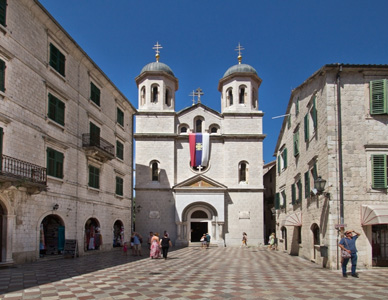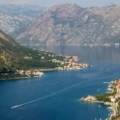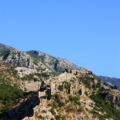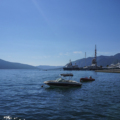Montenegrin religious monuments such as St. Nicholas Church reflect the harmony of the different ethnic and religious groups that peacefully coexist in this area. This Orthodox temple is dedicated to St. Nichola, one of the most respected saints, especially in the coastal areas. He is considered a protector of sailors and travellers. Although his remains rest in Bari, the cult of his personality came to Kotor and spread further as numerous families today celebrate him as their family saint.
Did you know that St. Nicholas Church is actually relatively modern compared to other religious sites in Kotor, having been completed in 1909 after the original structure was destroyed by fire?
It is no surprise that one of the most picturesque churches in Kotor’s Old Town bears his name. It is truly a standout structure in the city’s skyline. This, together with its mesmerising interior, is the reason why so many tourists and worshipers visit it. Therefore, make sure to put it on your itinerary list, and we will tell you more about this marvel in the following few paragraphs.
History of St Nicholas Church
The church dedicated to St. Nicholas was built at the beginning of the 20th century on the foundations of an older religious building.
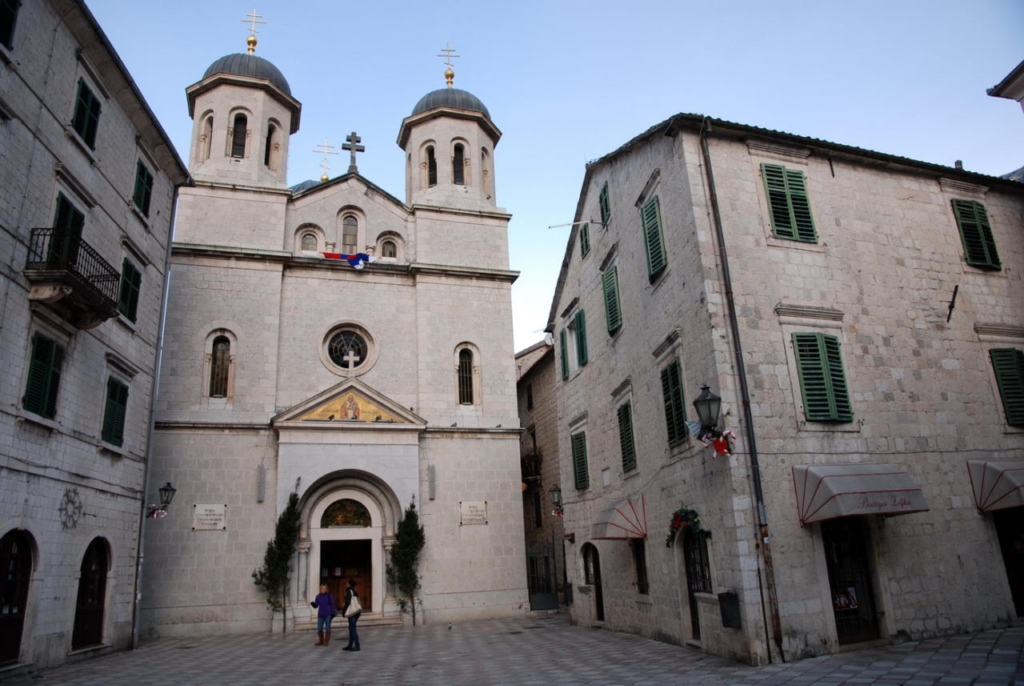
Prior to this, Kotor’s Square was home to the old Dominican monastery of St. Nikola, built around 1545. Unfortunately, this monastery was abandoned by the end of the 18th century until 1808, when part of the space was donated to the Orthodox to build a church. This was during the Napoleonic conquest, and Orthodox citizens of Kotor saw this as an incredible gesture, a sign of the peaceful coexistence of many religions in Kotor.
At this time, the religious object was confided to the chapel-like structure. This Orthodox church existed in that place from 1810 until Christmas Eve 1896. Unfortunately, it burned down together with the French barracks. However, in 1902, it was restored into the Church of St. Nicholas we know today. The foundation was consecrated on August 18 by Bishop Gerasim Petranović of Bokotor and Dubrovnik. The building was completed in 1909, which was commemorated on the front facade you can see even today.
Read Also: Explore the Best of Montenegro: Top 8 Tours You Must Experience!
The Style of St. Nicholas Church
Exterior
St. Nicholas Church is a religious masterpiece done in Byzantine style, making it appear much older than it actually is. The church was designed by the famous Croatian architect Kiril Iveković. The structure is framed by two massive bell towers with black domes. Gold crosses, a gift from Russia, are displayed above the domes while the entrance is decorated with a mosaic image of St. Nicholas.

Did you know that the double-headed eagle above the entrance symbolizes the Serbian Orthodox Church’s deep historical ties with the Byzantine Empire?
Interior
The church’s interior is equally mesmerising, with its iconostasis dating back to the beginning of the 20th century. This is a masterpiece of the master Franjo Ziegler, a professor of painting. Due to his experience in the Czech Republic and Russia, he used inspiration from the icons of that time. This is especially noticeable in the throne icons with silver fittings, which are the work of Kotor masters.
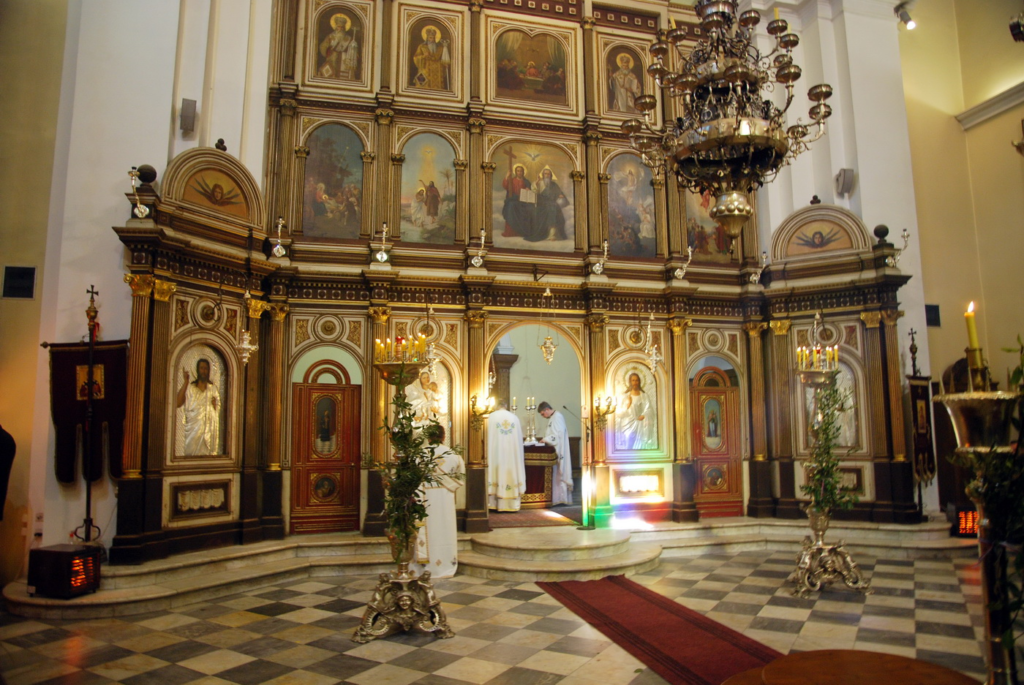
Despite the tradition of Orthodox churches, St. Nicholas Church is somewhat plain despite the mentioned decorations. However, the light captured from basic stained glass panels on the grey walls produces a serene and ethereal atmosphere that elevate its interior.
Besides artistic value, St. Nicholas church has numerous other valuable items, many of which were donated by wealthier Kotor families. Right next to the church is the Treasury of the Serbian Orthodox Church, with a rich collection of icons, arts and crafts objects, documents, and church vestments.
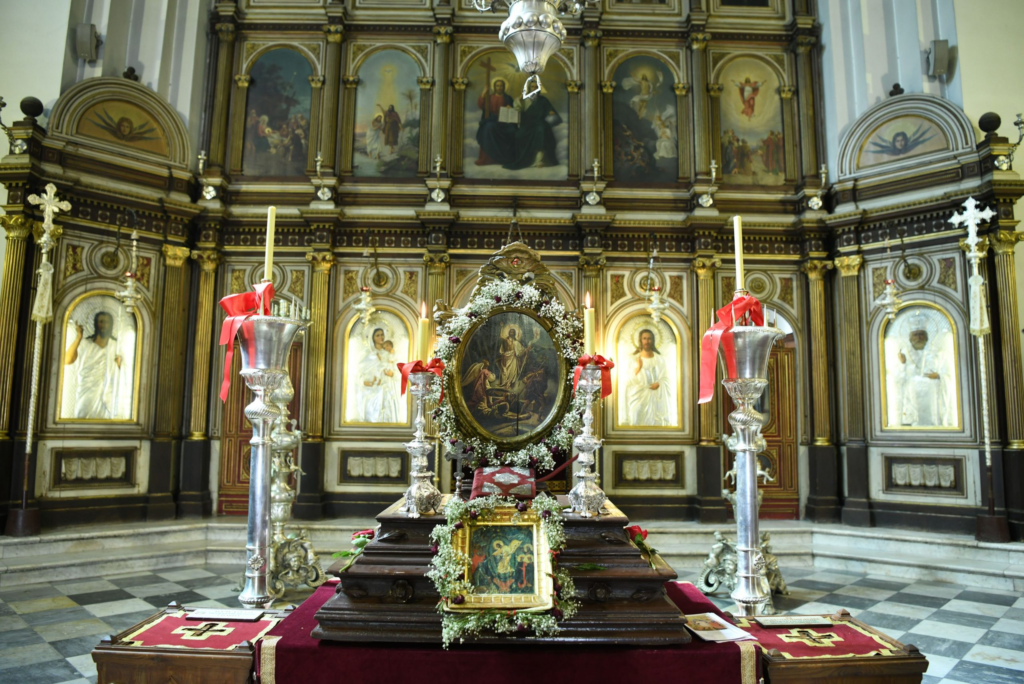
The most popular items include portraits of Boko Kotor bishops and their vestments. There are also several interesting books, such as ‘Srblje’ and one of the first editions of Vuk’s (Vuk Stefanović Karadžić) translation of the Holy Scriptures. Next to the church in treasury can be found on display essential documents. Among these you can observe the approval of the Austro-Hungarian emperor Francis Joseph for establishment of diocese of Bokokotor. The document is signed in Cyrillic.
Church in the 21st century
St Nicholas Church today belongs to a Serbian Orthodox congregation, and therefore, the Serbian flag hangs over the main entrance. It is the only Orthodox church in Kotor where services are held daily. Despite belonging to one religion, the costumes specific to multireligious Kotor are respected.
The best example of this is the respect shown during Easter. It is known that this holiday is celebrated in different times by Orthodox Christians and Roman Catholics. So when Catholics celebrate Good Friday, the Church of St. Nicholas do not ring the bells out of respect. Similar respect is shown for Orthodox people when they celebrate their Good Friday.
Did you know that every 6th of December, the feast day of St. Nicholas, the church hosts one of Kotor’s most important religious events, drawing both locals and visitors for special liturgies and celebrations?
Additionally, when there are celebrations of Saint Sava’s Day, Catholics start the festivities dedicated to Saint Tryphon, and then the city music welcomes both holidays simultaneously.
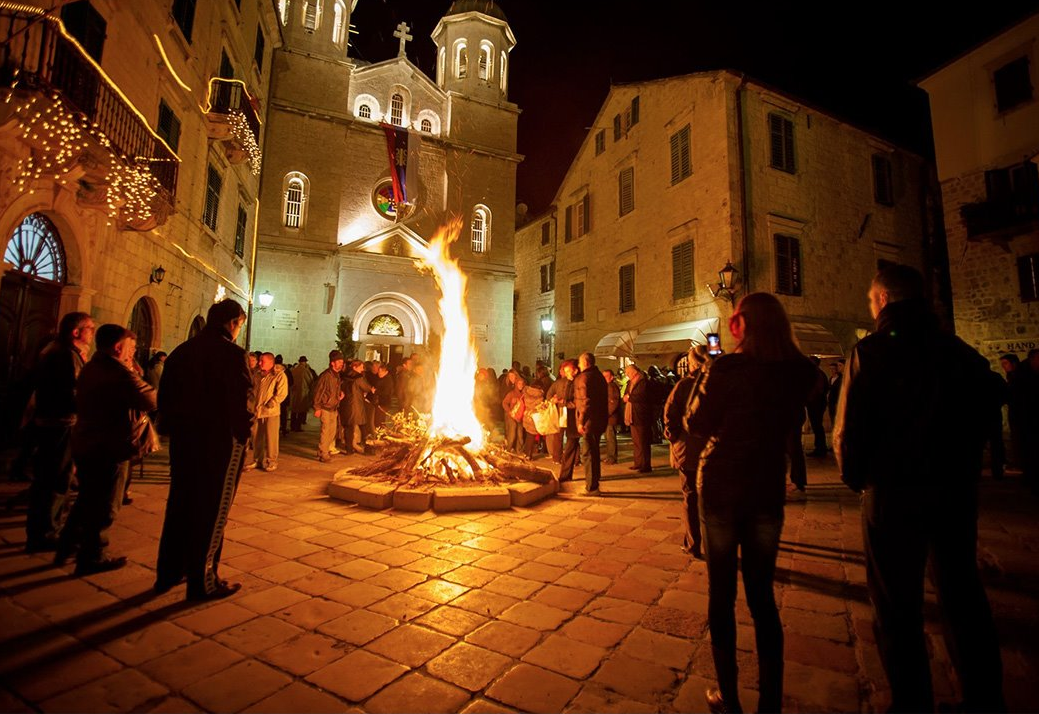
In this way, besides enjoying masterpiece of religious architecture you can also experience a mix of both worlds and see firsthand the genuine respect among religions.
If our blog inspired you to visit the St. Nicholas Church, you will be happy to know that admission is free while the opening hours are from 08:00 to 21:00.

